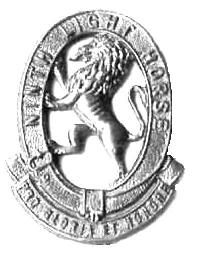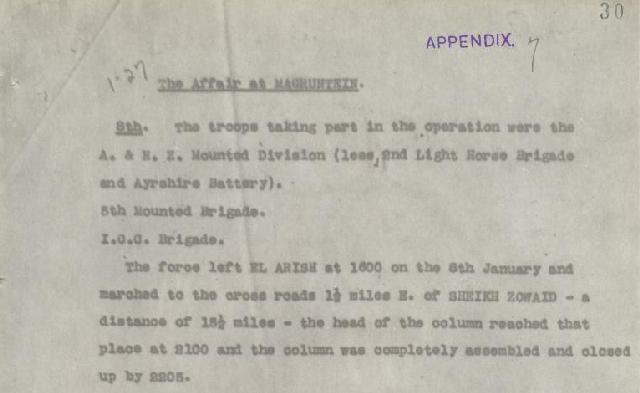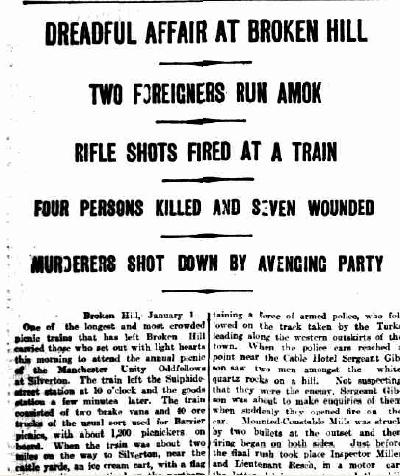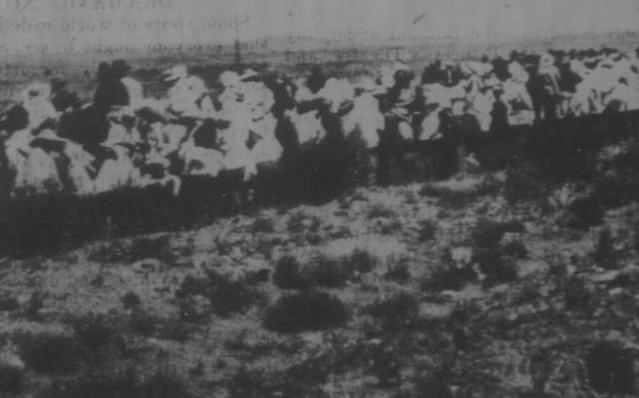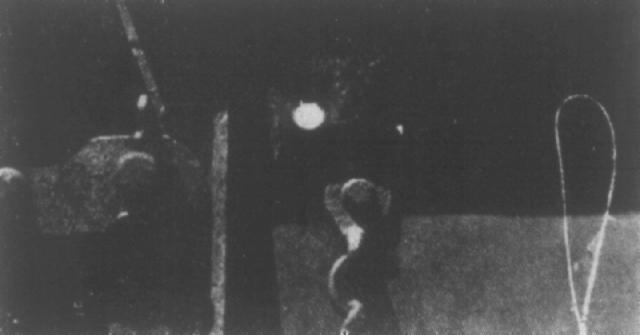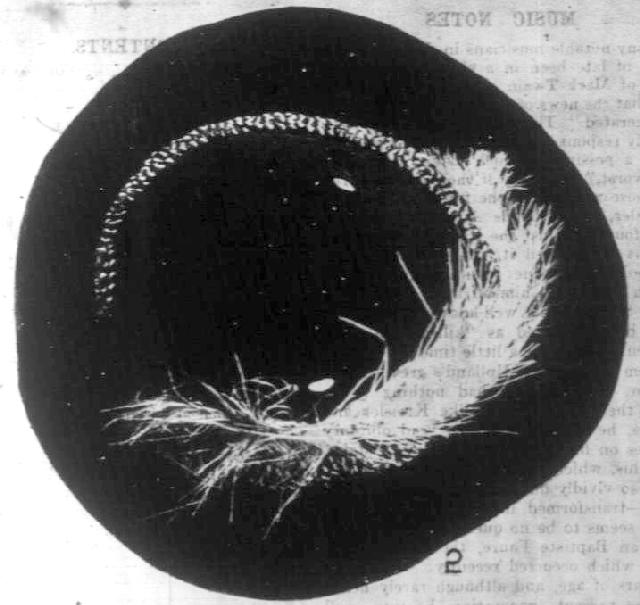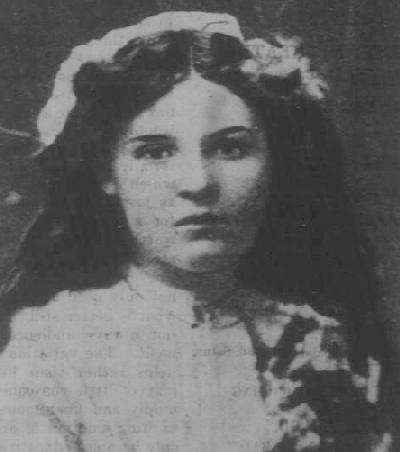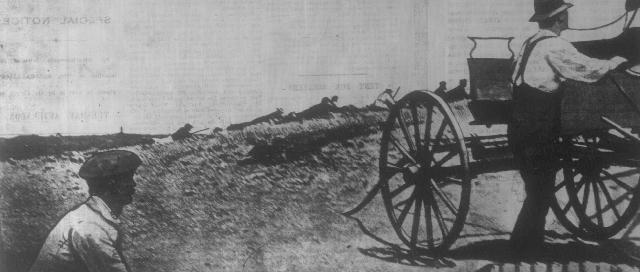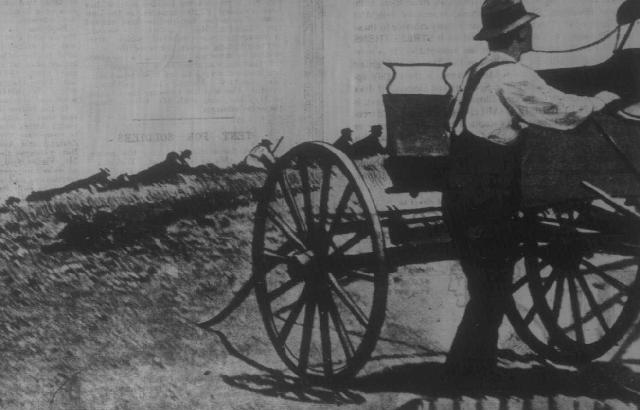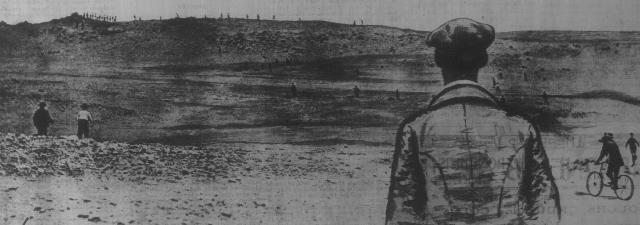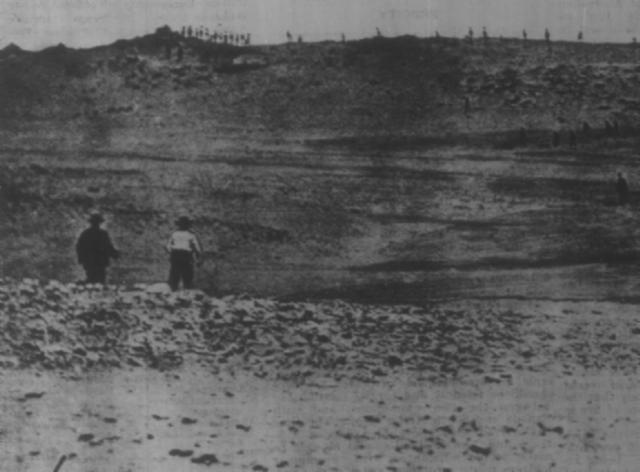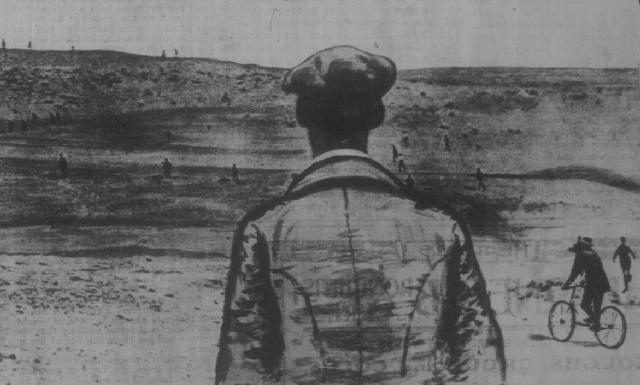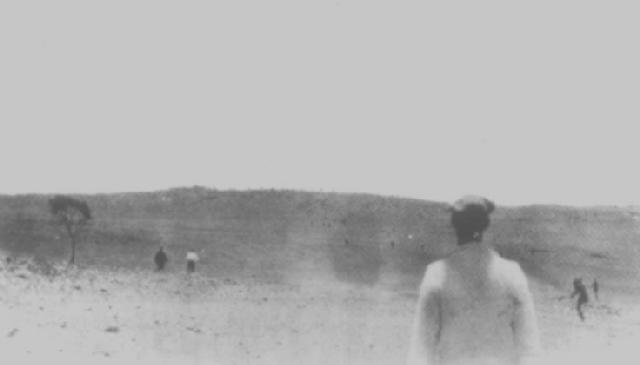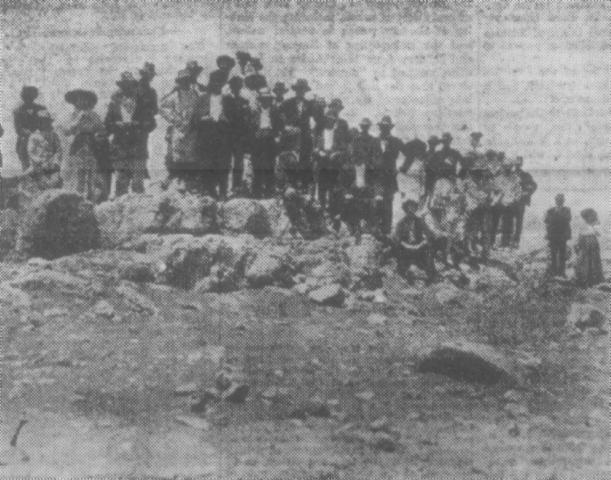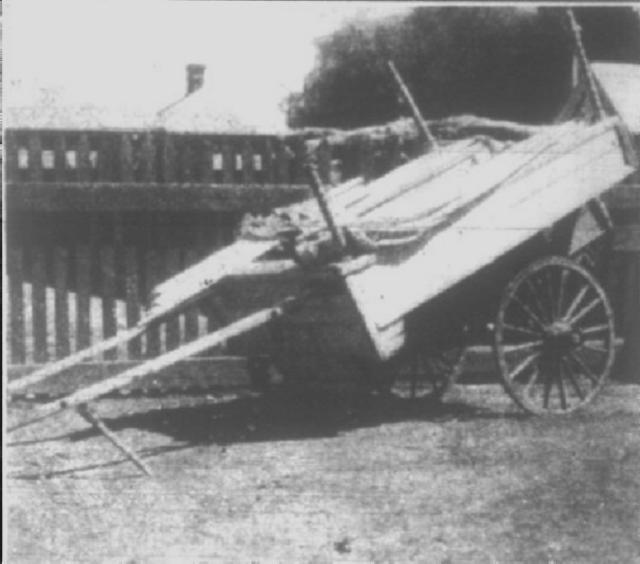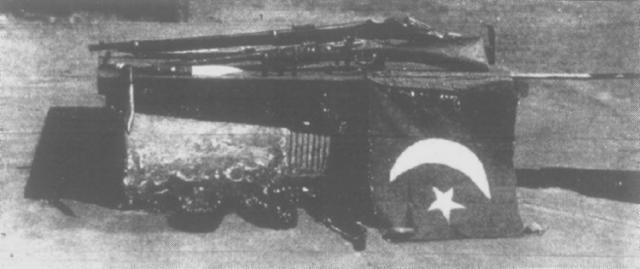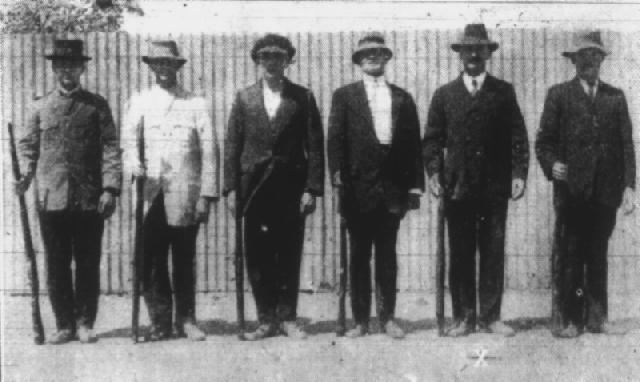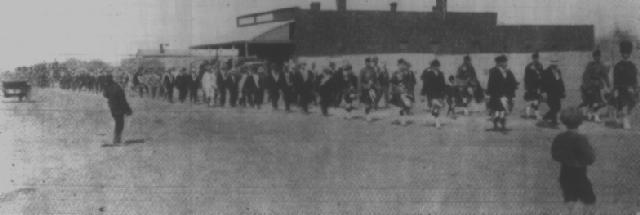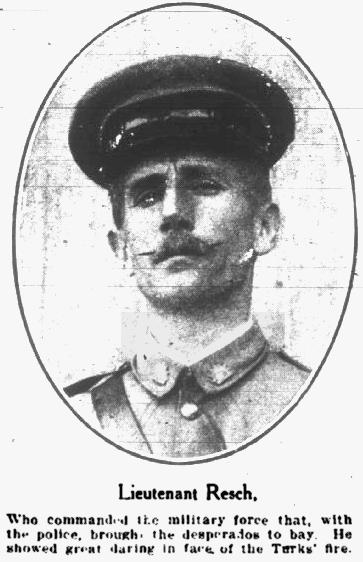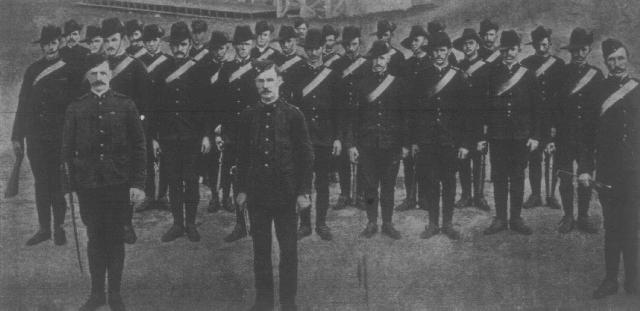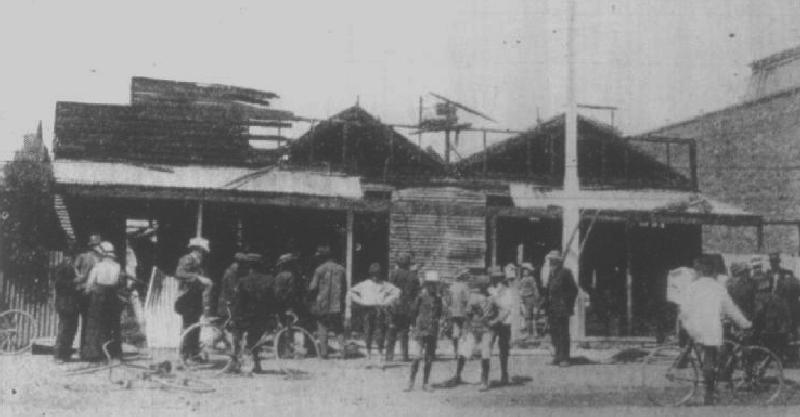The Affair at Magruntein
8th
The troops taking part in the operation were the
A & NZ Mounted Division (less 2nd Light Horse Brigade and Ayrshire Battery).
5th Mounted Brigade
ICC Brigade
The force left El Arish at 1600 on the 8th January and marched to the cross roads 1½ miles east of Sheikh Zowaid - a distance of 15½ miles - the head of the column reached that place at 2100 and the column was completely assembled and closed up by 2205.
The 5th Mounted Brigade, forming the advanced guard, placed a cordon round the village immediately on arrival and prevented any communication between those inside and the outside world.
9th
The A & NZ Mounted Division and ICC moved off at 0100 via point 210 and 250 to work round the enemy flank and to get into a position from which the works could be attacked from the East and South East.
En route, the New Zealand Mounted Rifles were detailed to rush an encampment of Arabs to prevent information of the move from reaching the Turkish forces. This was sone with complete success and 30 armed Bedouins were secured.
The Column Headquarters and the 5th Mounted Brigade followed an hour later and halted at point 210, pushing officers patrols in the direction of Rafa. Surprise was complete. The position was almost entirely surrounded before the enemy became aware of the presence of large forces in his vicinity, when great confusion prevailed.
At 0700 parties were sent to cut the wires connecting Rafa with Khan Yunis and Shellal.
As the ground appeared considerably more open than could be judged from the map the General Officer Commanding A & NZ Mounted Division was ordered to conduct deliberate artillery preparation while his division and ICC were getting into position to attack.
The guns started registering at 0720.
About this time useful information was received from aeroplane observers as to the trenches occupied and the strength of their garrisons. The information received from this source throughout the day, was good and accurate.
The main attack was timed by General Officer Commanding A & NZ Mounted Division for 1000, with the New Zealand Mounted Rifles Brigade on the right attacking from the East, the 1st Australian Light Horse Brigade next, attacking from East and South East while the camels attacked from South East. 3rd Light Horse Brigade in reserve. 5th Mounted Brigade in Column Reserve with Honourable Artillery Company.
At 1015 parties of Turks, who were attempting to leave Rafa by the Khan Yunis Road, were met by the New Zealand Mounted Rifles Brigade who galloped the Police Barracks and a Machine Gun post 300 yards to the south west. 6 Germans, 2 Turkish Officers and 103 Other Ranks were captured.
Rafa was occupied and at 1054 the 3rd Light Horse Brigade (less 1 Regiment) was put in against C5 and C4 on left of 1st Light Horse Brigade. 1st Light Horse Brigade was ordered to reinforce its line and to press attack on works C4 and C5, keeping touch with New Zealand Mounted Rifles Brigade. The Camel Brigade was ordered to press on. The attack was timed for 1130. Almost at the same time the remainder of the New Zealand Mounted Rifles Brigade with the 1st Light Horse Brigade, galloped the open stretch south of the Police Post and established itself north east of Big Tree (about 500 yards east of C 5.
5th Mounted Brigade, which had been ordered to send a squadron as escort to "B" Battery Honourable Artillery Company, was now (1020) ordered to deploy against works B1 and B2, and to work in conjunction with the Imperial Camel Corps Brigade.
At 1220 "B" Battery Honourable Artillery Company, which had been firing on the C Group from a covered position about ¾ mile North East of the point 210, moved forward about 1600 yards to support the attack of the 5th Mounted Brigade. At 1300 Royal Flying Corps reported our troops were advancing west of A1, A2 and B1, and were then about 500 yards from the enemy trenches. Our artillery were shelling A1 and B1 with good effect. A1 and A2 appeared to be held by 100 Turks in each work. Our dismounted troops had reached a line about 600 yards from B4 and C4.
At 1405 A & NZ Mounted Division reported that the right of the New Zealand Mounted Rifles Brigade had linked up with left of the 5th Mounted Brigade and were pressing attack on rear of redoubt on green knoll (A1).
At 1450 orders were issued by Desert Column for a concerted attack on Reduit by New Zealand Mounted Rifles Brigade and all available troops of A & NZ Mounted Division to commence at 1530. In this attack the 5th Mounted Brigade was ordered to cooperate with 5½ squadrons against the rear of the redoubt. "B" Battery Honourable Artillery Company was ordered to cooperate in an intense bombardment to cease at 1530.
At 1515 the situation was as follows:-
Works B3 and 4 were held by our troops, who were also linking the road running south from the Police Barracks and were within 500 yards of C5 and C6. About 1532 the 1st Light Horse Regiment reported the capture of 94 prisoners.
As this attack was developing a patrol on the coast 2 miles north east of the Rafa Police Barracks captured a machine gun, 4 German and a Turk, who stated that they belonged to a force of 1,500 men marching from Shellal to the relief of Rafa. This report was confirmed later (1550) by General Chauvel in a telephone conversation with Column Headquarters in which he said his patrols had seen a force of about 1,500 men four miles away.
Orders were at once given for the attack to be pressed with vigour and instructions were issued that if the position was not captured by 1700 the engagement was to be broken off and the force to be withdrawn under cover of darkness.
By 1645 the leading lines of the Gloucester and Warwick Yeomanry on the left of the 5th Mounted Brigade, supported by the fire of No. 7 Light Car Patrol, were within 200 yards of Green Knoll (A1). Almost at the same time the New Zealand Mounted Rifles Brigade captured the Reduit with brilliant dash covering the last 800 yards in two rushes supported by machine gun fire, and were thus enabled to take the lower lying works in reverse.
Shortly after the Camel Brigade and a detachment of the Warwick Yeomanry captured works B1 and 2 taking 320 prisoners, whilst the 1st and 3rd Light Horse Brigades carried the C Group of works. Works A1 and A2 were abandoned by the enemy just as the Gloucester Yeomanry reached them and the garrison surrendered to the A & NZ Mounted Division.
By 1730 all organised resistance was over, but the hostile detachment on the Shellal Road now came in contact with the 3rd Light Horse Brigade.
On the night 9th/10th January the force was in bivouac at Sheikh Zowaid with the exception of the 5th Mounted Brigade which returned to El Arish. During the 10th a squadron supported by the Regiment and No. 7 Light Car Patrol cleared the battlefield, whilst the remainder of the force returned to El Arish.
The detachment clearing the battlefield withdrew unmolested at 1300 on the 10th to Sheikh Zowaid.
